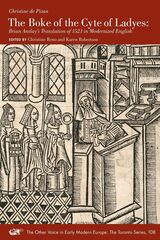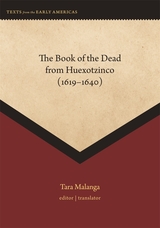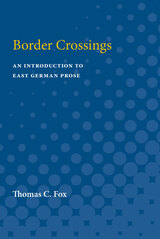2 books about Keen, Benjamin
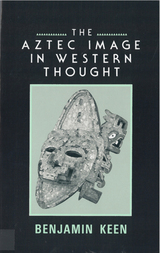
The Aztec Image in Western Thought
Keen, Benjamin
Rutgers University Press, 1990
The great inquiry into the nature of Aztec civilization began at the very moment of its destruction in the name of the Spanish Crown and Church. The overwhelming discovery of a vast, luxurious overseas empire offering fresh evidence of the enormous diversity of customs and opinions among the nations of the earth expanded the imaginative as well as the geographic horizons of Renaissance Europe.
In The Aztec Image, Benjamin Keen explores the shifting attitudes and focus of the scores of historians, philosophers, scientists, and men of letters and the arts who dealt with the Aztec theme in the four and a half centuries after the conquest of Mexico. From that time to the present, the world of the ancient Aztecs has been a subject of compelling interest and controversy in the West. Keen explains how each new view continuously corrected and developed, the Western conception of Aztec civilization. He relates prevailing ideas about the Aztecs to the broad socioeconomic, political, and ideological patterns of the age, as well as to the contemporary state of knowledge about ancient Mexico. A comprehensive work of historiography, Keen's book is the first to encompass the sweep of Western thought on the Aztecs from Cortes to the present.
In The Aztec Image, Benjamin Keen explores the shifting attitudes and focus of the scores of historians, philosophers, scientists, and men of letters and the arts who dealt with the Aztec theme in the four and a half centuries after the conquest of Mexico. From that time to the present, the world of the ancient Aztecs has been a subject of compelling interest and controversy in the West. Keen explains how each new view continuously corrected and developed, the Western conception of Aztec civilization. He relates prevailing ideas about the Aztecs to the broad socioeconomic, political, and ideological patterns of the age, as well as to the contemporary state of knowledge about ancient Mexico. A comprehensive work of historiography, Keen's book is the first to encompass the sweep of Western thought on the Aztecs from Cortes to the present.
[more]
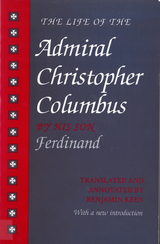
The Life of the Admiral Christopher Columbus
by his son Ferdinand
Keen, Benjamin
Rutgers University Press, 1959
This revised edition (originally published in 1959) of the famous biography of Columbus by his son Ferdinand was published to coincide with the Columbus quincentenary celebrations. Benjamin Keen's introduction traces the changing assessments of Columbus and his Discovery over almost five centuries, as reflected in the writings of historians, other social scientists, novelists, and poets, and shows how these assessments were influenced by varying political, social, and intellectual conditions. Keen has also revised his translation and notes to reflect new information and viewpoints. Ferdinand's book is a moving and personal document. Provoked in part by the Spanish Crown's attempts to diminish Columbus's role as discoverer, it reveals the restrained emotions of a loving son jealous of his father's honor. Ferdinand had access to all of his father's papers. At the age of thirteen, he accompanied Columbus on the last voyage and participated in many of the events he relates here. The narrative has the irresistible excitement of an adventure story: shipwreck, storms, and battles with mutineers or Indians. Ferdinand's imaginative insight into the many-faceted personality of the discoverer and his artistry with words make this biography, as Henry Vignaud has said, "the most important of our sources of information on the life of the discoverer of America." Benjamin Keen is Professor Emeritus of Latin American history at Northern Illinois University. He is the author of The Aztec Image in Western Thought (Rutgers University Press) and many other books.
[more]
READERS
Browse our collection.
PUBLISHERS
See BiblioVault's publisher services.
STUDENT SERVICES
Files for college accessibility offices.
UChicago Accessibility Resources
home | accessibility | search | about | contact us
BiblioVault ® 2001 - 2025
The University of Chicago Press


